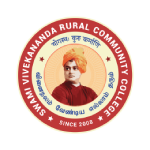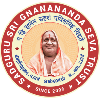Office Automation
Course Objectives
While studying the Office Automation, the student shall be able to:
- Explains the features of Windows
- Elaborates the various accessories used by Windows
- Describes the evolution of Computers and its advancements
- Elaborates major components of a Computer
- Enumerates the details of OS like Windows and Linux
Course Outcomes
After completion of the Course Office Automation, the student will be able to:
- Work on Windows files and folders
- Elaborate the history and evolution of Computers
- Identify and enumerate about the major components of the Computer
- List the input and output devices of the computer
- Explain the features of Linux
Block- 1: MS Word
Unit-1: Introduction to MS Word
Introduction to Word- Getting to know Word 2010- Editing text documents- Formatting documents- Saving Files- Formatting page & Setting Margins-. Special Symbols
Unit-2: Paragraph Formatting
Paragraph Formatting- Alignments and Formatting- Creating Table- Insert and Format Shapes- Spell Checking- Printing Document
Block- 2:MS PowerPoint
Unit-3: Introduction to PowerPoint
Introduction to Power Point- Creating and opening presentations- Slides and Layouts- Formatting a presentation
Unit-4: Animation and Effects using PowerPoint
Arranging Objects-Adding graphics to the presentation-Setting Animation Effect- Adding effects to the presentation-Transition effect
Block- 3:MS Excel
Unit-5: Introduction to MS Excel
Spread Sheet and its Application- Menus – Main Menu- Opening Spreadsheet- Working with Spreadsheets- Spread Sheet Addressing- Entering and Deleting Data
Unit-6: Functions in MS Excel
Inserting Functions-Formatting-Setting Formula-Mathematical Operations-Hiding/ Locking Cells-Shortcut Keys
Operating System and Internet
Course Objectives
While studying Operating System and Internet, the student shall be able to:
- Understand the features of Computers
- Describe and work with MS Windows
- Explain the procedure of Operating System(OS) and Internet
- Describe about Linux
Course Outcomes
After completion of the Course Operating System and Internet, the student will be able to:
- Work with various vision of Windows
- Explain about Windows Accessories and Installing and un installing of Software and Hardware
- Perform GUI based Operating System
- Work with Linux and Unix
Block-1: Computers
Unit-1: Evolution of Computers
Introduction-Evolution of Computers-Applications of Computers-Advantages and Disadvantages of Computers
Unit-2: Computer and its Components
Computer System-Components of a Computer System-Storage Unit-Input Devices- Output Devices- Ports
Block- 2: MS Windows
Unit-3: Introduction to MS Windows
Introduction to Windows- Features of Windows-Various versions of windows- Working with Windows- My Computer & Recycle bin- Desktop icons- Working Styles of windows- Working with Files & Folders- Shortcuts
Unit-4: Windows Accessories
Windows Accessories-Setting common Devices using Control Panel-Start Button & Program Lists-Installing and Uninstalling of Hardware and Software
Block- 3: OS and Linux
Unit-5: Operating System
Introduction to Operating System-Functions of Operating System-Types of operating systems (GUI Based)-Real Time and Distributed
Unit-6: Introduction to Linux
Components of Linux System-Basic System info Commands for Linux-Linux Boot- up Sequence-History of Linux- Difference between Linux and Windows- Difference between Linux and Unix
Unit-7: Linux
What is GNU?- Interesting facts about Linux-Why Linux is virus proof?-Various Linux Distributions-Basic Commands-Accessing remote servers and Files-Editing and manipulating files
Accounting Software
Course Objectives
While studying Accounting Software, the student shall be able to:
- Describe the features of MS Word and work with formatting
- Explain and create PowerPoint slides by inserting animations and graphics
- Work on MS Excel and perform different functions and manipulations
- Elaborate the different layout and styles used in Page Maker
Course Outcomes
After completion of the Course Accounting Software, the student will be able to:
- Edit and format the documents using MS Word
- Demonstrate skill of slide creation using MS PowerPoint
- Create records and files in MS Excel and manipulate the same and create graphs for the records
- Perform layout of text and format the same using Page Maker
Block-1: Principles of Accountancy
Unit-1: Basics of Accountancy
Origin of accounting-Meaning of accounting-Definition of accounting-Functions of accounting-Single entry and Double entry system of accounting-Accounting equation- Classification of accounts- Accounting standards-Accounting concept
Unit-2: Accounting
Accounting conventions-Journal-Ledger-Trial balance-Preparation of journal and ledger-Cash book-Two/double column cash book-Contra entry-Treble/three column cash book- Petty cash book- Computerized accounting system
Block- 2: Introduction to Tally
Unit-3: Tally ERP- 9
Introduction- Origin of Tally- Benefits of Tally Accounting Software- General Features of Tally software for users and learners- Inventory Features- Statutory Features- Starting step to open Tally ERP-9 – 2.8. Accounting Features in Tally ERP-9-User Interface- Button Bar-Keyboard and Mouse Conventions- Features of Tally ERP-9 Multi-Lingual- How to Quit From Tally ERP-9-Creation of Company in Tally
Unit-4: Animation and Effects using PowerPoint
Shut Company option-Alter or Edit Company Details in Tally-Changing Data Directory- Pre-Defined Groups-Primary Group-Sub Group-Types of inventory-A Group in a Tally- Alteration of Groups under Tally-Display group under Multiple Groups
Block- 3:MS Excel
Unit-5: Ledger Accounts in Tally
Ledger-How to Create Ledger in Tally ERP-9- Ledger Accounts Display- Edit or alter an account- Delete an account- Introduction to Voucher Entry in Tally ERP-9- Pre defined Vouchers in Tally ERP-9- Accounting vouchers in Tally-ERP-9
Unit-6: Contra and Payment Voucher in Tally
Contra Voucher- Inventory vouchers in Tally ERP-9- Voucher Types in Tally ERP-9- Introduction to Contra Voucher- Voucher Entry Configuration- To view Contra Voucher creation screen in Single Entry mode- Advantages of Single Entry Mode- Recording Contra Entry in Double Entry Mode- Payment voucher- How to create a Post-dated Voucher- Configuring an Invoice- Special Keys on the Button Bar- Narrations for each entry- Print after saving voucher- Displaying Post Dated Vouchers- Security control- Enable Tally Audit Features
Block-4: Tally and Taxation
Unit-7: Financial Tally
Preparation of Trial Balance- Checking the trial balance of a company-Profit and Loss Account or Income Statement- How to View Balance Sheet in Tally- Interest calculation- View Interest calculation report- Accounts Receivables and Payables in Tally-Entering Bill-wise details for a Purchase Voucher – New Reference- Making a Bill-wise payment – against Reference- Processing a Bill-Wise Receipt-Display Outstanding Statements- Print Outstanding Statements
Unit-8: Taxation
Value Added Tax (VAT) in India- Advantages of VAT- Methods of computation- Advantages of VAT over Sales Tax- Types of Dealers-VAT (Value Added Tax)- Requirements or Documents For VAT Registration- How to enable VAT in Tally ERP-9- Defining Tax Rate at Ledger or stock item Level- Enabling VAT in Tally ERP-9- Stock Item Creation-Creating Supplier Ledger-Creating Customer Ledger- Creating Purchase Ledger- Creating sales Ledger- Creating VAT Ledger- Transaction for VAT calculation- VAT Reports- Genesis of GST in India- The Need for GST- Features of the proposed dual model- Accounting of GST in Tally- Creating a Sales Ledger for GST- How to record a GST Purchase from unregistered dealer- Creating a Purchase Ledger for GST- Here is how you can create the GST – Goods and Services ledgers in Tally- Benefits of GST Implementation
Office Automation(Practical)
The following exercises are to be carried out using MS Word/ PowerPoint/ Excel:
- Create and Design Admission/Enquiry Forms
- Create bills/leaflets/brochures
- Design E-book cover pages / Magazine front/ books front/back page using cover page option in Insert Menu
- Create Business Cards using Shapes, text, and colours
- Use smart art and create organization charts
- Make books content page or index page
- Try to create similar Header & Footer that you’re seeing in the Book
- Insert Image into the shape
- Practice hyperlink and create links between word document texts to D: /, Play songs from Microsoft word text, create the link between internal and external files.
- Create a chart using Excel
- Get the newspaper and see the text-based advertisement and Design that advertisement in Microsoft Word
- Take a double-column book or newspaper and design or create a similar paragraph style in the word document.
- Create a letterhead, Identity card of any company or institution that you got and insert the Watermark with that company name in the document
- Decorate word document with page border, content border, add pattern, and write beautiful text in it
- Create a PowerPoint slide show with animation, transition effect and graphics

